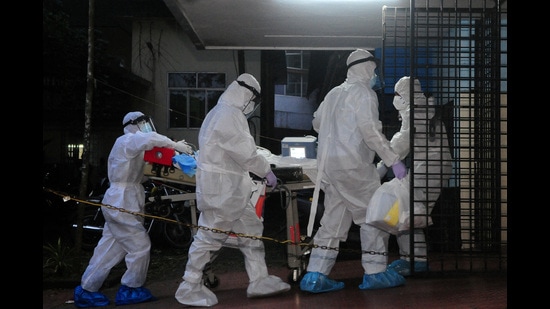Maharashtra on alert after Chandipura virus outbreak in Gujarat
All officials are directed to strengthen comprehensive epidemiological, environmental and entomological surveillance and studies
Following the Chandipura virus outbreak in the nearby state of Gujarat, which reportedly caused 16 deaths and 50 reported cases of Acute Encephalitis Syndrome (AES), the state public health department issued an alert on Friday.

The joint director of health services, Dr Radhakishan Pawar who is heading the vector-borne disease control programme in the state issued an advisory on July 19 to all municipal corporations, zilla parishads, civil surgeons, district health officers, and malaria officers in the state.
All officials are directed to strengthen comprehensive epidemiological, environmental and entomological surveillance and studies. Also, officials are asked to identify villages and areas with sandflies as sensitive to Chandipura and conduct house-to-house insecticide spraying, read the advisory.
The virus is spread by the female phlebotomine sandfly, which is abundant during the early monsoon season. Chandipura infection produces encephalitis, which is the inflammation or swelling of brain tissue. Typical symptoms include a rapid onset of fever, vomiting, altered mental state, convulsions, diarrhoea, neurological deficits, and signs of meningeal irritation.
Dr Pawar, said, following the sporadic cases reported in Gujarat, Rajasthan and Madhya Pradesh, and the high fatality rate amongst children below 15 years it is imperative that we take immediate precautions to prevent the spread of this disease to our state.
“All officials are asked to arrange regular surveys in Chandipura-sensitive villages identified in the past few years. These measures should be implemented immediately in all sensitive districts of the state,” he said.
The advisory recommends immediate referral of children under 15 years with symptoms such as sudden fever, behavioural changes, convulsions, or fainting, they should be immediately referred to the nearest primary health centre, rural hospitals or district hospital. Besides, blood samples of such patients should be tested for dengue, Japanese Encephalitis (JE), and Chandipura to ensure a definite diagnosis.
Information about patients with symptoms of vector-borne diseases (Chandipura, Dengue, Chikungunya, AES, JE) should be promptly entered into the Integrated Health Information Platform (IHIP) portal, stated the advisory.
A senior official from the health department said, “People should maintain cleanliness in these areas and dispose of dung away from the habitation. Besides insecticide spraying in affected villages and within a 5 km radius, conduct house-to-house insecticide spraying. Also spraying of insecticides inside and outside cattle sheds, covering walls up to 4 feet is suggested.”
Dr Pawar further informed all districts and healthcare facilities are asked to ensure an adequate stock of medicines for treating Chandipura patients at all primary health centres, rural hospitals, and district hospitals.
“If required arrangements for additional medicines should be made. Detailed training in the treatment of encephalitis patients for doctors in all hospitals with the help of specialists from medical colleges should be arranged. Also, Information Education and Communication (IEC) activities should be conducted for the public about the disease, the importance of prompt hospitalization, and measures for preventing the disease and related deaths,” he said.






